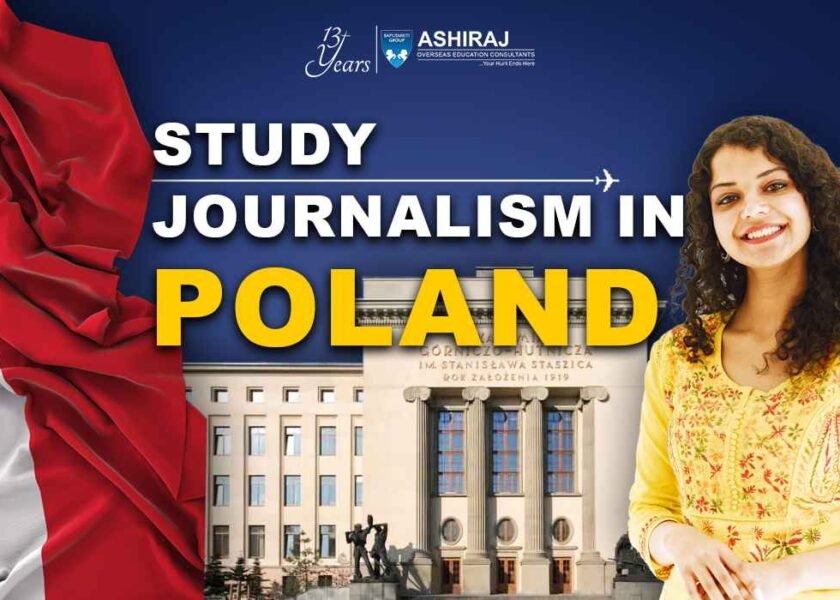
Journalism in Dubai
In the bustling metropolis of Dubai, journalism serves as both a window to the world and a mirror reflecting its diverse cultural landscape. Journalism in Dubai embodies a blend of tradition and modernity, navigating through the city’s dynamic socioeconomic fabric and global significance. With its skyscrapers piercing the sky and a population representing over 200 nationalities, Dubai offers journalists a rich tapestry of stories ranging from business ventures to cultural celebrations.
At the heart of journalism in Dubai lies a commitment to transparency and innovation, mirroring the emirate’s relentless pursuit of progress. From established media outlets to burgeoning digital platforms, the media ecosystem in Dubai thrives on its ability to adapt to an ever-evolving landscape while upholding journalistic integrity. As Dubai continues to assert itself on the global stage, journalism remains instrumental in shaping narratives, fostering dialogue, and amplifying voices within and beyond its borders.
Why to Study Journalism in Dubai?
- Global Hub: Dubai serves as a bustling hub of international commerce, culture, and innovation, offering journalism students exposure to diverse perspectives and stories from around the world.
- Multicultural Environment: With a population representing over 200 nationalities, studying journalism in Dubai provides a unique opportunity to engage with a melting pot of cultures, enriching both personal and professional experiences.
- Cutting-Edge Facilities: Dubai boasts state-of-the-art media facilities and technology, providing students with access to the latest tools and resources essential for modern journalism practice.
- Industry Connections: The city’s thriving media industry offers ample opportunities for internships, networking, and mentorship, facilitating hands-on learning experiences and potential career pathways.
- Dynamic Landscape: Journalism in Dubai is characterized by its dynamic landscape, with a diverse range of topics including business, politics, culture, and technology, ensuring students are equipped to tackle multifaceted challenges in the field.
- Career Prospects: Graduates of journalism programs in Dubai are well-positioned for careers in various media sectors, both locally and internationally, leveraging the city’s global connectivity and reputation for excellence in journalism education.
Studying journalism in Dubai not only equips students with the necessary skills and knowledge for a successful career but also immerses them in a vibrant and dynamic media environment at the crossroads of the world.
Top Universities to Study Journalism in Dubai
University | QS World University Rankings 2023 | Type of University | Average Annual Fees | Programs Offered |
American University in Dubai | 651-700 | Private | $15,000 – $20,000 | Journalism, Media Studies |
University of Dubai | 801-1000 | Public | $10,000 – $15,000 | Mass Communication, Digital Journalism |
Zayed University | 801-1000 | Public | $8,000 – $12,000 | Journalism and Strategic Communication |
Murdoch University Dubai | Not Ranked | Private | $12,000 – $18,000 | Journalism and Communication |
Middlesex University Dubai | Not Ranked | Private | $14,000 – $22,000 | Journalism and Digital Media Arts |
Dubai stands as a beacon of education excellence, offering a range of universities catering to aspiring journalists. Here’s a breakdown of the top institutions providing journalism education in Dubai according to QS World University Rankings 2023. American University in Dubai leads the pack, offering programs in Journalism and Media Studies. University of Dubai and Zayed University also feature prominently, providing comprehensive education in Mass Communication, Digital Journalism, and Strategic Communication. Additionally, Murdoch University Dubai and Middlesex University Dubai offer specialized programs in Journalism and Communication, ensuring students receive a well-rounded education tailored to the evolving landscape of Journalism in Dubai.
Course Curriculum for Journalism in Dubai
- Core Journalism Principles: The curriculum emphasizes foundational principles such as ethics, objectivity, and news writing techniques, tailored to the context of Journalism in Dubai.
- Multimedia Skills: Students are equipped with multimedia skills including video production, photography, and digital storytelling to adapt to the demands of modern journalism in Dubai’s dynamic media landscape.
- Cultural Sensitivity: Recognizing Dubai’s multicultural environment, courses focus on developing cultural sensitivity and understanding to accurately report on diverse communities and perspectives.
- Industry-Relevant Projects: The curriculum integrates real-world projects, internships, and collaborations with media organizations in Dubai, providing students with hands-on experience and industry connections.
- Digital Journalism Tools: With a focus on technological advancements, students learn to utilize digital tools, social media platforms, and data analytics for effective storytelling and audience engagement in Journalism in Dubai.
The course curriculum of Journalism in Dubai is designed to equip students with a comprehensive skill set, blending traditional journalistic values with contemporary multimedia techniques, cultural awareness, and digital proficiency. This holistic approach prepares graduates to excel in the diverse and rapidly evolving media landscape of Dubai, catering to the unique needs and opportunities present in Journalism in Dubai.
Eligibility Criteria & Admission Requirements for MS in Journalism in Dubai
- Language Proficiency: Applicants are required to demonstrate proficiency in English by providing either IELTS or TOEFL scores. For IELTS, a minimum score of 6.5 is typically required, while for TOEFL, a score of at least 80 is common.
- Standardized Tests: Depending on the university, applicants may need to submit scores for either GRE or GMAT. For GRE, a competitive score falls around 300, while for GMAT, a score of 550 or above is often expected.
- Documentary Requirements: Prospective students should prepare their academic certificates, including transcripts and diplomas, showcasing their educational background and qualifications relevant to Journalism in Dubai.
- Work Experience: While not always mandatory, relevant work experience in journalism, media, or related fields can strengthen an applicant’s profile, demonstrating practical skills and industry knowledge.
Table: Standardized Test Scores
Test | Minimum Score |
IELTS | 6.5 |
TOEFL | 80 |
GRE | 300 |
GMAT | 550 |
For international students, additional requirements may include obtaining a valid passport, securing a student visa for the duration of study in Dubai, and fulfilling any specific visa regulations set by the UAE authorities. Aspiring journalists seeking admission to programs in Dubai are encouraged to thoroughly review the eligibility criteria of their desired institutions to ensure compliance with all requirements for Journalism in Dubai.
Documents Required for Studying Journalism in Dubai Required
- Passport: A valid passport is essential for international students intending to study journalism in Dubai. Ensure your passport has sufficient validity beyond the duration of your intended stay.
- Letters of Recommendation (LOR): Typically, two letters of recommendation from academic or professional sources are required, highlighting your aptitude for journalism and suitability for the program in Dubai.
- Statement of Purpose (SOP): A well-crafted SOP outlining your motivations, aspirations, and reasons for choosing journalism in Dubai can significantly strengthen your application.
- Curriculum Vitae (CV): A comprehensive CV detailing your educational background, work experience, relevant skills, and achievements is necessary for admission to journalism programs in Dubai.
- Official High School Transcripts and Educational Certificates: Submit official transcripts and certificates from your high school or equivalent educational institution, demonstrating your academic achievements and qualifications for Journalism in Dubai.
- Work Experience Certificate: If applicable, provide a work experience certificate highlighting any relevant experience in journalism, media, or related fields.
- Proof of Financial Resources: To meet visa requirements and demonstrate financial stability, provide proof of sufficient funds to cover tuition fees, living expenses, and other costs associated with studying journalism in Dubai.
Ensuring the timely submission of these documents is crucial for a smooth application process and securing admission to journalism programs in Dubai. Adhering to the specified requirements helps prospective students fulfill the criteria for Journalism in Dubai while positioning themselves competitively for acceptance into their desired programs.
Admission Process for Journalism in Dubai
- Research: Explore journalism programs offered by universities in Dubai, considering factors such as curriculum, faculty expertise, and facilities to align with your career goals in Journalism in Dubai.
- Check Eligibility: Review the eligibility criteria, including academic requirements, standardized test scores, and language proficiency exams such as IELTS or TOEFL, ensuring compliance with Journalism in Dubai standards.
- Prepare Documents: Gather required documents including passport, academic transcripts, letters of recommendation (LOR), statement of purpose (SOP), curriculum vitae (CV), and proof of financial resources, adhering to Journalism in Dubai guidelines.
- Submit Application: Complete the online application form and submit all necessary documents before the specified deadline, ensuring accuracy and completeness to enhance your chances of admission to journalism programs in Dubai.
- Interview (if required): Some universities may conduct interviews as part of the admission process for Journalism in Dubai, providing an opportunity to discuss your motivations, goals, and suitability for the program.
- Receive Admission Decision: Await the admission decision from the university, typically communicated via email or through the online application portal, and follow any additional instructions provided.
- Accept Offer and Visa Process: Upon acceptance, confirm your enrollment, and proceed with the visa application process, adhering to UAE regulations for studying journalism in Dubai.
Navigating the admission process for journalism programs in Dubai requires careful planning, thorough preparation of documents, and adherence to deadlines, ensuring a seamless transition into your chosen program and pursuit of Journalism in Dubai.
“Education is the most powerful weapon which you can use to change the world.”
Nelson Mandela
Cost of Journalism Course in Dubai
- Tuition Fees: The cost of tuition for journalism programs in Dubai varies depending on the university, program duration, and level of study. On average, annual tuition fees range from $10,000 to $20,000 for undergraduate programs, with higher fees for postgraduate studies in Journalism in Dubai.
- Accommodation: Accommodation expenses in Dubai can also impact the overall cost of studying journalism. Students have the option to live on-campus in university dormitories or off-campus in private accommodation, with costs ranging from $8,000 to $15,000 per year, depending on preferences and location.
- Living Expenses: Dubai is known for its high standard of living, which includes expenses such as food, transportation, utilities, and leisure activities. Students should budget approximately $10,000 to $15,000 per year to cover these living expenses while pursuing Journalism in Dubai.
- Additional Costs: Other expenses to consider may include textbooks, study materials, health insurance, visa fees, and extracurricular activities, adding to the overall cost of studying journalism in Dubai.
- Scholarships and Financial Aid: Some universities in Dubai offer scholarships, grants, or financial aid programs to support students pursuing journalism education. Prospective students are encouraged to explore these opportunities to alleviate the financial burden of studying Journalism in Dubai.
Understanding the cost of studying journalism in Dubai is essential for prospective students to plan their finances effectively and make informed decisions about their education and future career in Journalism in Dubai.
Scholarships for Journalism Courses in Dubai
Scholarship Name | Amount | Application Deadline |
Mohammed bin Rashid School of Communication (MBRSC) Scholarships | Up to 50% of tuition fees | May 31 |
Dubai Press Club Scholarships | Full tuition fees | June 15 |
Zayed University Scholarships | Partial tuition fees | April 30 |
American University in Dubai Scholarships | Varies | March 31 |
Middlesex University Dubai Scholarships | Up to 25% of tuition fees | July 15 |
Scholarships for Journalism in Dubai provide financial support to deserving students pursuing education in the field. The table above lists various scholarships available, including their amounts and application deadlines. The Mohammed bin Rashid School of Communication (MBRSC) offers scholarships covering up to 50% of tuition fees, with an application deadline of May 31, providing significant support for students interested in Journalism in Dubai. The Dubai Press Club Scholarships cover full tuition fees and have an application deadline of June 15, offering comprehensive financial assistance for aspiring journalists. Zayed University and American University in Dubai also provide scholarships, covering partial or varying amounts of tuition fees, with application deadlines of April 30 and March 31 respectively. Additionally, Middlesex University Dubai offers scholarships covering up to 25% of tuition fees, with an application deadline of July 15, contributing to the accessibility of journalism education in Dubai.
Career Opportunities After Journalism in Dubai
Job Profile | Average Salary (AED/month) |
Journalist | 8,000 – 15,000 |
News Anchor | 12,000 – 25,000 |
Editor | 10,000 – 20,000 |
Digital Content Creator | 9,000 – 18,000 |
Public Relations Specialist | 9,000 – 16,000 |
Career opportunities after studying journalism in Dubai offer diverse pathways with competitive salaries. Journalists in Dubai can expect to earn an average monthly salary ranging from 8,000 to 15,000 AED, depending on experience and specialization. News anchors command higher salaries, with an average monthly income ranging from 12,000 to 25,000 AED, reflecting their prominent role in broadcasting news to the public. Editors play a crucial role in shaping content and can earn between 10,000 to 20,000 AED per month. As digital media continues to expand, digital content creators are in demand, with average salaries ranging from 9,000 to 18,000 AED. Public relations specialists, responsible for managing communication between organizations and the public, earn between 9,000 to 16,000 AED per month. These career opportunities underscore the rewarding prospects available to graduates in Journalism in Dubai, offering both financial stability and avenues for professional growth in the dynamic media landscape of the city.
Frequently Asked Questions About Journalism in Dubai
Several universities in Dubai offer journalism programs, including the American University in Dubai, University of Dubai, Zayed University, Murdoch University Dubai, and Middlesex University Dubai.
The cost of studying journalism in Dubai varies depending on the university and program, but there are scholarship opportunities available to help alleviate expenses.
Graduates of journalism programs in Dubai can pursue careers as journalists, news anchors, editors, digital content creators, and public relations specialists, among others.
While Arabic proficiency may be beneficial, many journalism programs in Dubai are conducted in English, making it accessible to international students.
Yes, there are numerous internship opportunities available at media organizations in Dubai, providing valuable hands-on experience for journalism students.
Yes, international students are welcome to study journalism in Dubai, but they may need to obtain a student visa and fulfill certain requirements.
The duration of journalism programs in Dubai varies, but undergraduate programs typically take around four years to complete, while postgraduate programs may take one to two years.
Yes, there are opportunities for freelance journalism in Dubai, with many media outlets accepting contributions from freelance journalists.
Admission requirements may include academic transcripts, standardized test scores (such as IELTS or TOEFL), letters of recommendation, a statement of purpose, and a CV.
You can stay updated by following local media outlets, attending industry events and conferences, and joining professional journalism organizations in Dubai.




